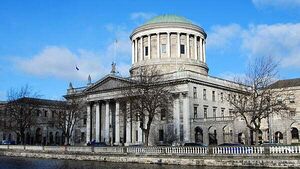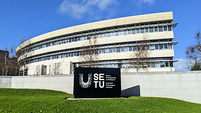Couple in witness protection programme lose appeal over claim for new 'false' birth certs

Ann O'Loughlin
A couple who entered the witness protection programme with their family have lost a Supreme Court appeal in which they claimed they were entitled to new birth certs under their new assumed names.
The husband had provided information to gardaí on the activities of a criminal gang, and the family were subjected to harassment and intimidation by the gang, including an attempt on the husband's life and threats to the wife.
Steps were taken by gardaí to protect them and their then three children in Ireland before they were accepted as suitable for relocation to another jurisdiction under the Witness Security Programme (WSP).
They had to hand over their identity documents including birth and marriage certs and driving licences. The couple understood they would be issued with like-for-like documents in the new jurisdiction and while they were issued with replacement other documents, they were not given new birth and marriage certs.
They encountered a difficulty when they sought to have their three Irish-born children admitted to school in the new jurisdiction because birth certs were required. Their fourth child was born after they entered the programme.
The difficulty was overcome with the assistance of the equivalent police authority to our witness protection group in the country they moved to. But the wife found this very distressing and described being forced to lie to schools about the missing documents as “disgusting” and deeply upsetting.
They complained in their High Court action that the failure by the State to supply them with altered birth certificates had greatly complicated their life in that foreign State. That failure amounted to a denial of their constitutional rights, they said.
The High Court last year dismissed their case saying it would be disproportionate to insist that the State amend its system of registration of births and marriages "in order to reduce the level of any interference with the plaintiffs’ constitutional rights necessitated by their participation in the WSP”.
That court also said this should not be taken "as a discouragement to the State to place [the WSP] on a statutory basis”.
The couple were granted an appeal to the Supreme Court.
The Supreme Court delivered the judgment last week and then supplied it to the parties to ensure that no identifying information was inadvertently included before publishing it more generally on Thursday. That court dismissed the appeal in three concurring judgments.
In his judgment, Chief Justice Donal O'Donnell said the logic of the couple's case was that all members of the family were entitled to birth certificates in assumed names, and in the case of the parents, a new marriage certificate
What they asserted was a right "to a deliberately false statement" as if it were an authentic and correct statement of fact, with the implied representation that it could be relied on without more and backed by the State.
He said it was accepted that no one has a constitutional right to a birth certificate in terms of their own choosing, however sincerely they desire it.
In relation to their constitutional right to life claim, the judge said there was no evidence that the absence of new birth certificates gave rise to any additional risk to their lives, but rather, it was said that the WSP would operate more smoothly, and they would be spared the frustrations and inconvenience they experienced if new certificates were available.
It appears possible from the evidence of other jurisdictions to provide for a system under which new birth certificates can be issued, he said.
The gardaí operating the system would, it seems, welcome that facility, he said.
There are arguments of practicality and policy which might lead the Oireachtas to decide to create such a mechanism here, but they are matters for the Oireachtas, he said. They "do not rise to the level" at which it can be said that it is required either by the Constitution, or by the European Convention, he added.
Mr Justice Gerard Hogan and Mr Justice Maurice Collins gave concurring written judgments.





